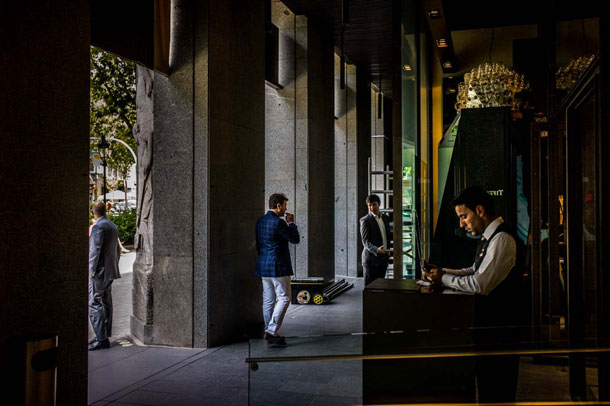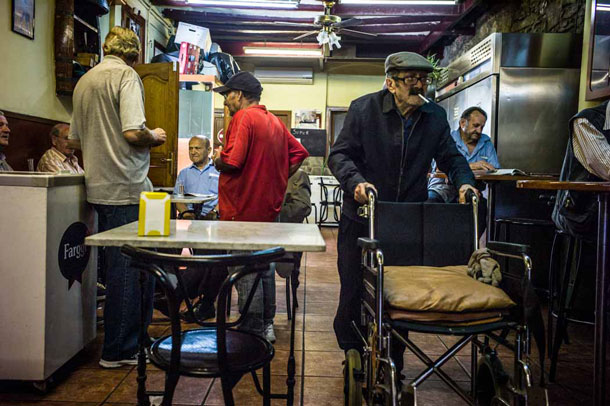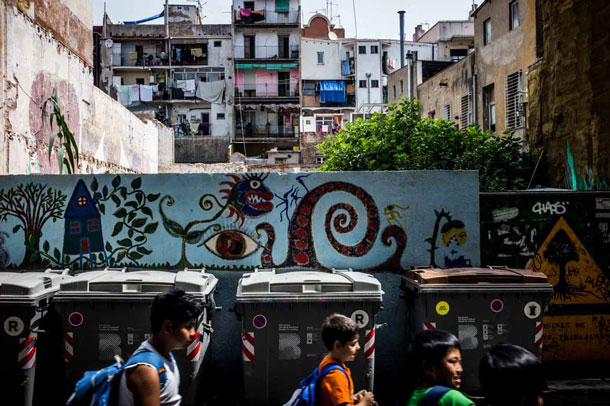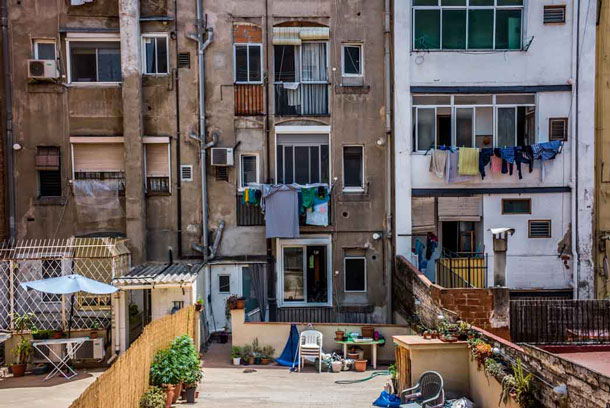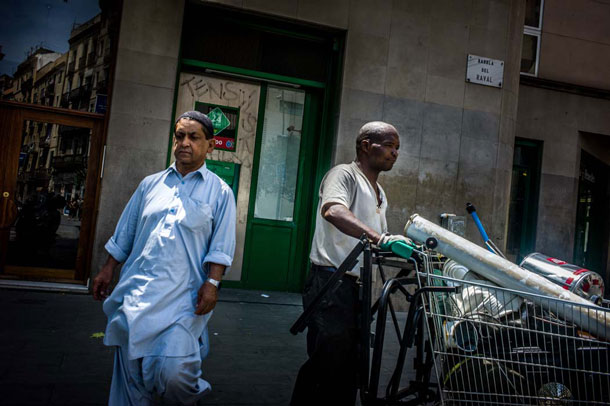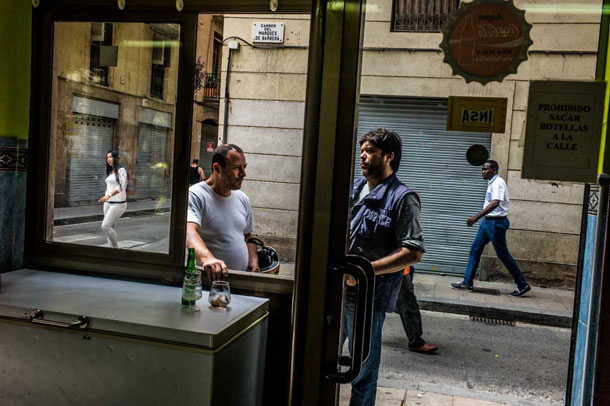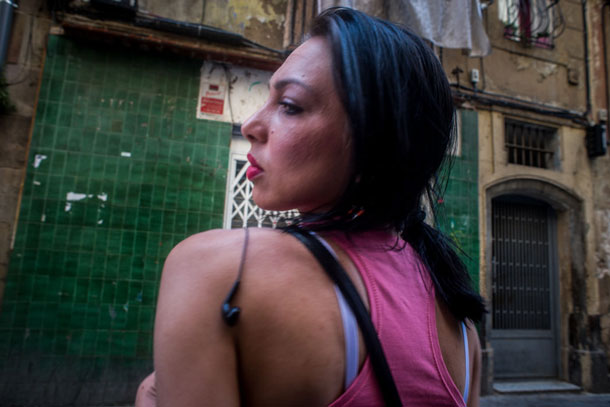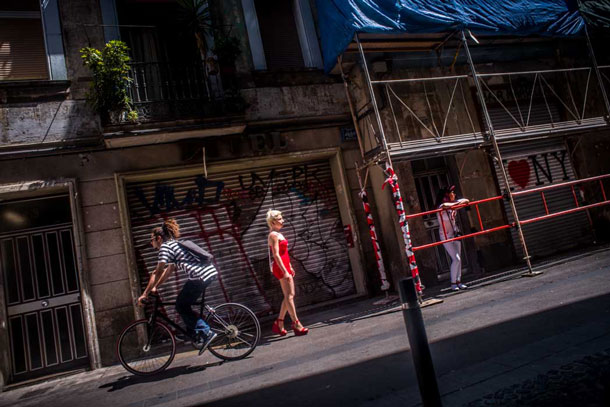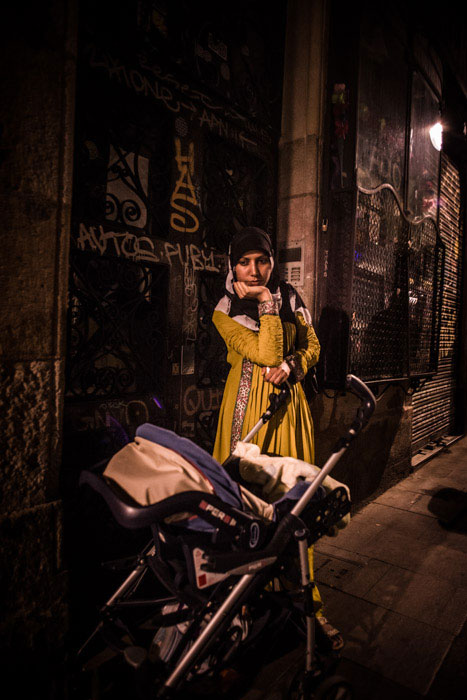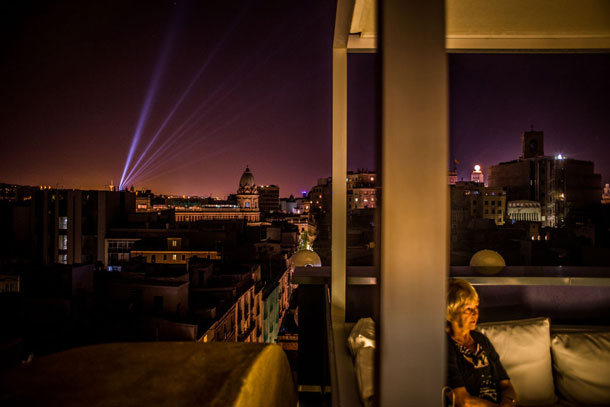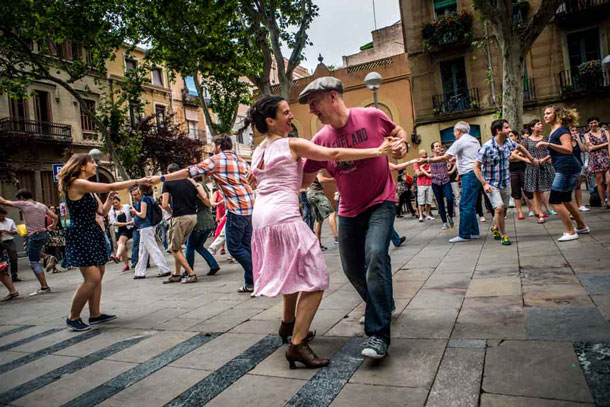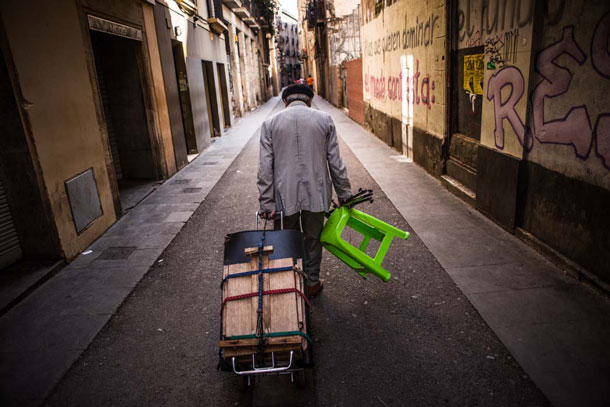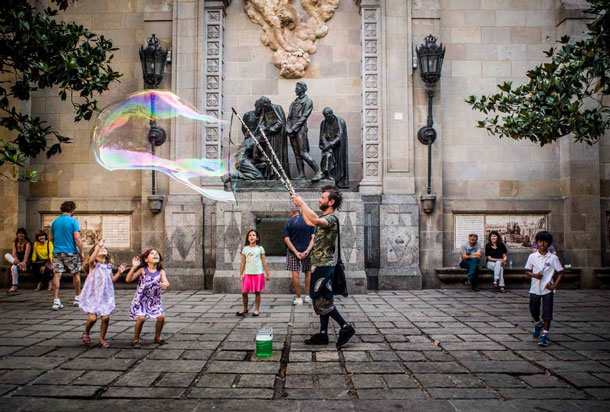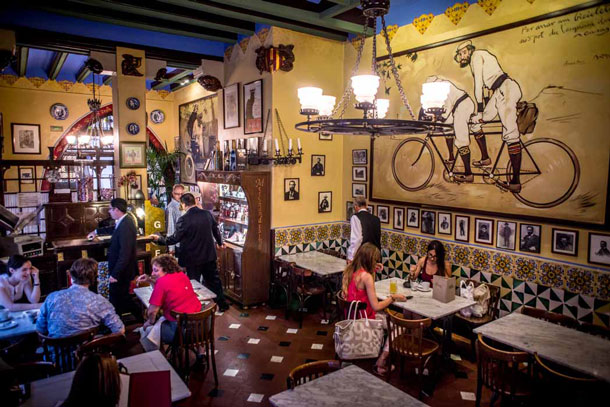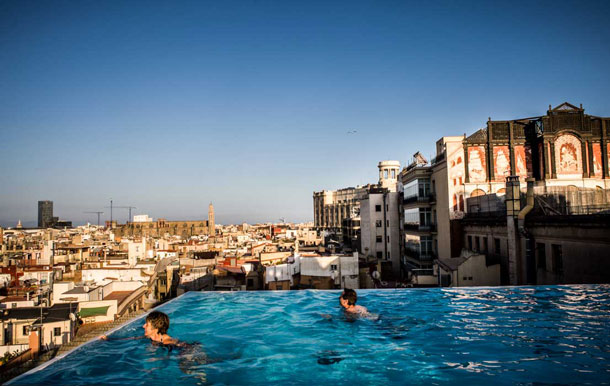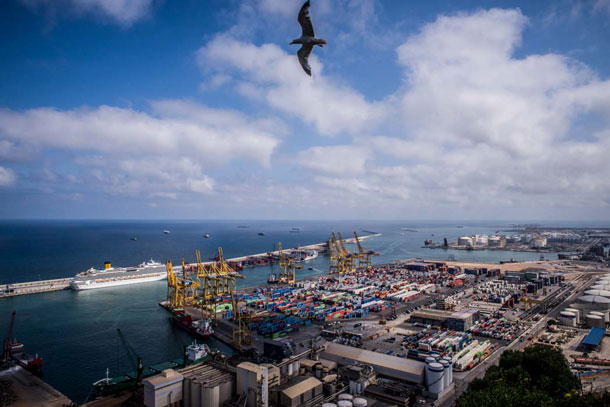Text by BEATRIZ SILVA
Photos by LORENZO MOSCIA
The monumental transformation undergone by Barcelona with the 1992 Olympic Games has failed to make disappear the diverse working-class city full of contrasts disappear where Pablo Picasso began painting in 1896. It is not necessary to venture too deep into the narrow streets of the El Raval or El Born neighborhoods to discover the Barcelona of the belle époque where prostitutes wore the best clothes to welcome the sailors and where it is still possible to get drunk on absinthe.
Despite being one of the richest cities in Spain, Barcelona has a poverty rate of around 18%. This figure is even worsening due to an economic crisis that has pushed up unemployment in Spain to 27%. This situation particularly affects vulnerable groups such as the elderly and immigrants who are forced to search for scraps of food or beg to survive. The number of people sleeping on the street has grown by half in just five years.
This other Barcelona which is not seen in the postcards showing the works of Antoni Gaudí coexists with the chic city that is characterized by the design terraces of the elegant hotels from where it is possible to see the city that set the stage for novels such as The Shadow of the Wind by Carlos Ruiz Zafón and Cathedral of the Sea by Ildefonso Falcones.
It is still possible to find the dark dragons on the walls and sit on the steps that were once supposedly populated by the characters of the Cathedral of the Sea. However, the crisis is also ruining this literary Barcelona: landmarks such as the Canuda bookstore that served as inspiration to Carlos Ruiz Zafon for the Cemetery of Forgotten Books and where Roberto Bolaño used to buy his books will disappear in October. Instead, a trendy clothing retailer will open the doors in its place.
A similar fate was recently met by the centennial bookstore Catalonia which after surviving the ravages of the civil war and a fire was forced to cede its space to a McDonald’s.
Beatriz Silva is a Chilean photographer living in Barcelona.
Italian photographer Lorenzo Moscia is, most of the time, shooting a D600 with an old 24mm F2.8 and an M9 with the 35mm Cron.
For more of his work visit lorenzomoscia.com.

